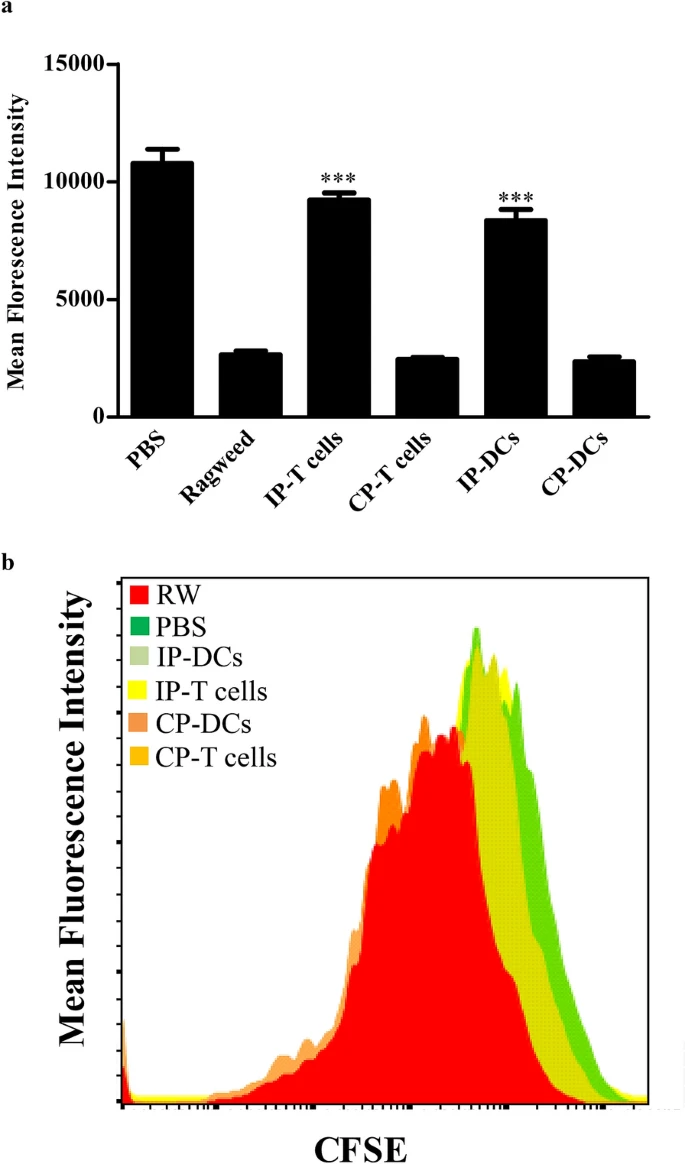Trained immunity is the ability of the innate immune system to form immune memory responses to provide support the formation of appropriate adaptive responses. Allergic airways disease (AAD) is a maladapted immune response to allergens, initiated and maintained by the type 2 (T2) inflammatory pathway. It is predicated by the elaboration of cytokines IL-4 and IL-13 and follows activation of the STAT6 transcription factor.
To investigate the role of trained immunity in mucosal immune responses following neonatal vaccination with the STAT6 inhibitory peptide (STAT6-IP), in preventing the development of ragweed-induced AAD.
We demonstrate that transfer of CD4+ T cells or dendritic cells (DC) from STAT6-IP vaccinated wild-type BALB/c mice to naïve mice, that were subsequently chronically exposed to sensitizing doses of ragweed allergen, is sufficient to prevent development of T2 responses in recipients.
Our results demonstrate significant reductions in; airways hyperresponsiveness (AHR); ragweed-specific IgE; pulmonary inflammation; T2 cytokines; and inflammatory gene expressions in recipient mice. Expression of IDO, TGFβ and T regulatory cells were all significantly increased. Anti-TGFβ treatment during the ragweed sensitization phase re-constituted the pro-inflammatory T2 immune response. We show that tolerance can be attained via DC trained in the STAT6-IP-mediated tolerant milieu. This effect is not restricted to a particular allergen and does not require antigen-mediated T cell activation prior to transfer.
Adoptive transfer experiments suggest that STAT6-IP treatment trains dendritic and cells to mediate tolerant immunity to chronic ragweed exposure in the airways. This indicates that early transient STAT6-inhibition constitutes an effective immunomodulatory airways allergy preventative strategy.

No comments:
Post a Comment